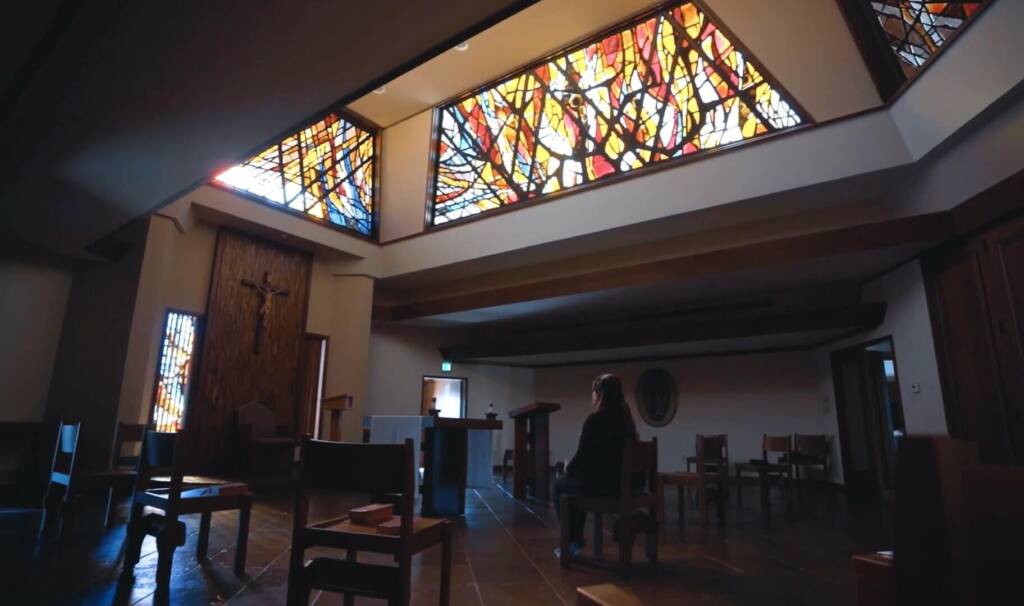Why Get More Involved with Your Church?
Being a parishioner of a church means more than simply attending weekly services. Membership can certainly be rooted in regular attendance, but it can also look like volunteering for church functions; performing outreach duties, such as visiting parish members who are in the hospital; or leading classes or workshops for fellow parishioners. Since community is a major pillar of worship, being a church parishioner means sharing your time and skills with others in your faith community. True spiritual growth happens when you become an active participant in worship, instead of a passive follower.
What’s more, many master’s degree programs in ministry, theological studies, or divinity prefer applicants to be active members of their parish. Graduate programs may even request letters from parish leaders attesting to an applicant’s level of commitment and involvement. Active church membership shows initiative and passion, which bodes well for post-graduate success.
If you plan to enter (or are currently in) a theological studies or related master’s degree program, let your parish leaders know. They may include you in more activities related to your academic interests, and may even be able to help you pay for your degree through a parish educational fund.
10 Ways to Get More Involved with Your Church
There are plenty of ways to serve your church. Your choice of service usually comes down to the amount of time you can commit and where your passions lie.
First, consider your personal interests and skills. Were you born to teach? Are you great with children? Do you have a knack for community outreach? Are you a natural at public speaking?
In addition to identifying your existing talents and interests, it helps to listen to those around you. As you attend worship services and move through your parish, keep your eyes and ears open to the needs of others. Perhaps someone is having trouble making it to church every week — can you volunteer to drive them? Maybe there’s growing interest in a weekly women’s Bible study group — would you be interested in leading one?
Often, the key to becoming more involved is simply being present and attuned to the needs of your church community. The answer may be right in front of you!
If you’re stuck for inspiration, consider these opportunities for serving your own church:
1. Show Up Beyond Worship
Even if you don’t know exactly how you can help out in your parish, start by attending activities outside of worship services. Most parishes host “extracurricular” events like picnics, study groups, crafting groups, concerts, or volunteer days. If you start showing up to these events, chances are you will see how you can help out at the next one, or strike up a conversation with someone who knows exactly where you could be most helpful. you may even be able to learn a new skill!
2. Become Part of Weekly Worship
There are many positions available to laity during worship services. While some require formation or training, others require no formal preparation at all — just your time and dedication! Inquire with parish leadership about becoming an usher, deacon, lector, or acolyte.
3. Work with Parish Kids
Young children are an intrinsic part of a vibrant parish community, but they can’t always stay for a full worship service. If you enjoy working with children, volunteer for nursery duty or ask how you could help in Sunday School. If you have the appropriate skills and experience with young people, you may even be able to become a Sunday School teacher or Confirmation class leader. Youth groups and Vacation Bible School are other great opportunities to volunteer with the younger members of your parish.
4. Become a Parish Teacher
Leading a Bible study group or catechism class may require some formation guided by your parish leaders, but the opportunities you gain will be endlessly rewarding. Teaching is the best way to learn, and leading others in studying Scripture can deepen your own connection to your faith. If leading a full class of children or adults doesn’t suit your preferences, find out if there are one-on-one mentorship opportunities available in your parish.
5. Lead Lay Ministry
Within every congregation, there are parishioners with their own unique needs or perspectives that can be served through small group ministry. With the right training and formation, you could lead lay ministry that speaks directly to women, teens, trauma survivors, or those who are grieving. Don’t currently see a ministry within your church that speaks to you? Propose and start your own.
6. Join the Events Crew
In addition to weekly services, your parish likely performs and hosts weddings, funerals, concerts, and other events. Volunteer to be on the crew that sets up and breaks down these events. Duties can include stocking the pews with programs, candles, and tissues; setting up decorations; sweeping and vacuuming the worship space; making sure each worship space has an appropriate amount of Bibles and hymnals; and checking that all exits are clear and accessible. Event prep can also include food — if you love to cook, dust off your apron!
7. Maintain the Premises
A well-kept physical space can add great value to worship activities. If you are handy, offer to provide regular or on-call maintenance; even if you don’t have specific skills, almost anyone can operate a broom or mop to keep hallways and gathering spaces clean. If your church has a garden or grounds, offer to weed, cut grass, or maintain flower beds.
8. Stay Connected to Fellow Members
Chances are there are members of your parish who haven’t been able to attend a service in a while. Or maybe they have, but they are struggling with something outside of church. If there’s someone who needs extra support outside of worship services, connect with them and ask how you can help. They may need a ride to church once a week, or help around the house following the death of a spouse. Sometimes, keeping fellow members connected to their church community is as simple as paying them a visit once in a while or maintaining written correspondence — anything to let them know they are not forgotten.
9. Offer Tech Support
Does your church have virtual services, or would they like to start? If you are tech-savvy, you can help your parish leaders establish a virtual worship service program, film services for later viewing, update the sound system, or install video monitors that project hymn lyrics to parishioners. If social media is your bread and butter, see if church leadership would be interested in appointing you as a social media director.
10. Raise Your Voice in Song
Do you love to sing? Every parish needs people to lend their voices to the choir or become cantors. Inquire about joining or auditioning for your parish music program, and don’t forget to mention if you play an instrument!
See overview: University of San Diego – Master of Theological Studies
Top Resources for Serving Your Parish
Churches are very good at spreading the word, both within their congregations and beyond. Most modern churches have newsletters, bulletins, or online forums where they post upcoming events, study group schedules, and requests for volunteers.
Utilize the following resources to find out how you can get involved in your church:
- Sign up to receive your church’s email or physical newsletter
- Check the community bulletin board for upcoming opportunities or needs within the parish
- Read the weekly program or bulletin cover to cover — sometimes parish announcements or requests are printed in the back or inserted as leaflets
- Follow your church on social media for up-to-the-minute news
- Regularly visit your church’s website to see new announcements or community updates
- Join a committee or apply for parish council to make connections with like-minded parishioners
- Call your parish office to speak to someone directly about volunteer opportunities
If you identify a need within your church and don’t see any opportunities to fill it, take it upon yourself to propose ideas to leadership. For example, if you notice there are lots of parishioners who can no longer make it to worship services, volunteer to start a weekly rideshare program.
If you are not currently a member of a church, research opportunities with faith-based organizations (FBO) in your area. They will likely be affiliated with a local church, so you can fulfill your desire to volunteer while connecting to a potential parish.
Go to the FST YouTube page FST EDU1 to learn more about Franciscan ideas
FAQs: Getting More Involved in Church
How do I start getting involved in my church?
The first step is to listen. Ask your fellow parishioners where you could be most helpful. Attend events outside of worship services to identify future volunteer opportunities. There is no “right way” to be involved — any time, extra hand, or specific skills you could offer will be appreciated. When in doubt, talk to parish leaders about how they think you could best help your church.
Where do I look for parish volunteer jobs?
If your church has a newsletter, directory, or events bulletin, start there. If you have trouble identifying the right opportunities, give your parish office a call and speak to someone about your availability and interests. Faith-based organizations are also a great resource for volunteer opportunities connected to local churches.
Do Master of Theological Studies programs require volunteer experience?
While volunteer hours are not always necessarily a requirement, graduate program admissions boards like to see volunteer experience on applicants’ resumes. Applicants may also be required to submit letters of recommendation, often from parish leaders who can speak to the applicant’s involvement in their church. This kind of experience shows dedication and a sincere passion for service, which are excellent qualities for graduate students to have.
What is lay ministry?
Lay ministers can lead group worship within the church but outside of the regular worship service; for example, they can specialize in children’s ministry, women’s or young adult ministry.
How do I start my own ministry?
The first step in starting your own lay ministry is to talk to your parish leaders. Lay ministry often requires training and formation directed by a church official, who will then approve an individual to lead worship. If you are passionate about leading a particular type of ministry — such as for children, women, or any other particular group — seek guidance and assistance from your parish leaders.




